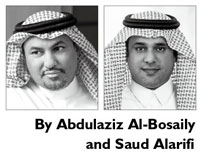 Following the recent decision by the Council of Ministers’ to open up the Saudi stock exchange (the Tadawul) to certain non-GCC investors, we take a closer look at the current status of the stock exchange and the decision’s potential impact. Many non-GCC foreign investors have been waiting eagerly for more access to the region’s biggest and most liquid market. The Saudi Arabian Council of Ministers, in its meeting held on 24 of Ramadan 1435H (corresponding to July 21st, 2014), passed a decision which paves the way for the Capital Market Authority (the CMA) to open the Tadawul to certain investors, at a time it sees fit and pursuant to the regulations to be issued by the CMA. The Chairman of the CMA issued a statement commenting on the Council of Ministers decision and according to which the CMA, once the statutory procedures are completed, will work on the publication of draft rules for qualified foreign financial institutions’ investment in listed shares by August 2014 to enable concerned and interested parties to provide their comments and observations on these rules for a period of 90 days after publication for consultation. The CMA will review all comments and observations by the end of this year and will assess the readiness of Tadawul for such a move. In addition, the CMA will coordinate with the relevant government parties prior to the adoption of rules. Based on the above, the market will be opening up during the first half of 2015 for qualified foreign financial institutions wishing to invest in companies listed on the Tadawul. At present, the Tadawul trade is largely dominated by local retail investors who account for around 90 percent of volumes traded while foreign investors represent just less than five per cent of the total. For the month of July 2014 the value of shares traded by Saudi investors was SAR 114.41 billion (93.20 percent) for buying, and SAR 117.11 billion (95.41 percent) for selling. The value of shares traded by investors from other GCC member states was SAR 3.10 billion (2.53 percent) for buying, and SAR 2.13 billion (1.74 percent) for selling. By contrast, the value of shares traded during the same period by foreign investors was a mere SAR 5.24 billion (4.27 percent) for buying, and SAR 3.51 billion (2.86 percent) for selling. Foreign non-GCC investors are only allowed to invest on the Tadawul indirectly through mutual funds, corporate portfolios and swap arrangements. Such arrangements put licensed local firms in position to trade on the market on behalf of a foreign client however such arrangements have proven to be a relatively expensive and inconvenient option. Swap arrangements were first introduced by the CMA in September 2008 which back then was widely seen by financial institutions as a first step towards opening the Saudi market to foreign investors. The CMA will issue a set of draft rules this month and given that the CMA is understood to be a conservative regulator it is expected to adopt rules similar to other major emerging economies that have opened up their financial markets. Given that the CMA’s policy is to attract long-term investors rather than short-term speculators, the CMA is expected to link eligibility of the qualified foreign financial institutions to factors such as the value of assets under its management, the value of its investment in the market and the number of years they have been in business. It is likely that there will also be ceilings for foreign ownership of Saudi Arabian companies. Unlike other Middle Eastern markets such as United Arab Emirates and Qatar, Tadawul is not on the MSCI Emerging Markets index as yet, however, the opening up of the Tadawul to qualified foreign financial institutions certainly would increase the likelihood of Saudi Arabia’s Tadawul being included in the MSCI Emerging Markets index in the near future. Tadawul’s total equity market capitalisation at the end of July 2014 reached SAR 2,100.25 billion (US$560.06 billion) making it the Arab world’s biggest market and, therefore, the opening of Tadawul to qualified foreign financial institutions is one of the most keenly awaited economic reforms in the world’s top oil exporter. |
Abdulaziz A. Al-Bosaily Law Office
in association with Clyde & Co LLP
Tel: (966) 11 200 8817 / Fax: (966) 11 200 8558
Email: abdulaziz@albosailylawoffice.com
saud.alarifi@clydeco.com
Website: www.clydeco.com

